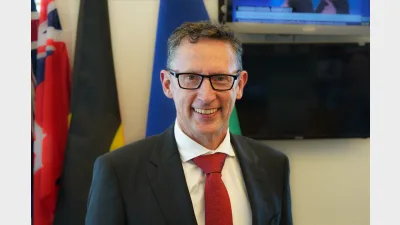Jones approves member ‘nudges’ and outlines advice charging model



Minister for financial services, Stephen Jones, has said he expects a “significant response” from superannuation funds to provide member advice as he outlines what funds can charge.
Unveiling details about its Delivering Better Financial Outcomes reforms in Canberra on 7 December, Jones outlined what funds could charge for advice, which had been a key question during earlier consultation on super funds providing advice.
The same list of advice topics will apply to collectively charged advice and advice that is charged direct to individual member’s super account.
Jones said: “Super funds have a unique obligation to meet the sole purpose test. That is, a fund is to be maintained solely for the purpose of providing retirement benefits to members which leaves some funds uncertain about how advice can be paid for.
“I want to provide certainty that charging members for retirement income advice from their superannuation satisfies this obligation. This will take the form of the Government clarifying a list of advice topics that are appropriate to be charged to a member’s superannuation.
“The topic list will be broad. It will include investment decisions – such as the appropriate investment options within a fund and contributions strategies.
“It will include delivering retirement income – such as retirement projections, a drawdown strategy and recommendations about retirement products.
“And it will allow the fund to consider broader circumstances for both the member and their household – such as their debt and assets, their partner’s situation, and eligibility for the Age Pension and other government support.”
Jones also confirmed super funds will have a specific permission available to them within the current general advice framework to allow them to ‘nudge’ members.
This was a topic brought up last week by Aware Super, a major super fund already offering digital advice, at the Association of Superannuation Funds Australia (ASFA) conference where chief operating officer, Jo Brennan, called for a super ‘health check’.
“I would love to be able to provide personalised nudges to our members, we are storing this data and would love to put it to good use and help people set up a preventive plan to enable them to have a better lifestyle in retirement,” Brennan said.
“The only way we will be able to have that effect is via these nudges to give people a health check and to dial up the personalisation on offer.”
In response, Jones said: “We will create a specific permission within the current general advice framework to allow superannuation funds to prompt or ‘nudge’ members. This will allow funds to be proactive and encourage members to think about their financial situation and to seek advice at important decision-points that they might otherwise have missed.
“For example, this could be as simple as sending personalised messages to a member at important life stages. A person at the age of 55 might be shown their projected balance and retirement income to get them to consider seeking advice on whether their contributions strategy will meet their retirement objectives.
“A person at preservation age might be informed about the benefits of switching to the tax-free pension phase or how their drawdown phase might look.
“That is, millions of members will receive helpful messages with relevant and timely information.”
Recommended for you
The future of superannuation policy remains uncertain, with further reforms potentially on the horizon as the Albanese government seeks to curb the use of superannuation as a bequest vehicle.
Superannuation funds will have two options for charging fees for the advice provided by the new class of adviser.
The proposed reforms have been described as a key step towards delivering better products and retirement experiences for members, with many noting financial advice remains the “urgent missing piece” of the puzzle.
APRA’s latest data has revealed that superannuation funds spent $1.3 billion on advice fees, with the vast majority sent to external financial advisers.













